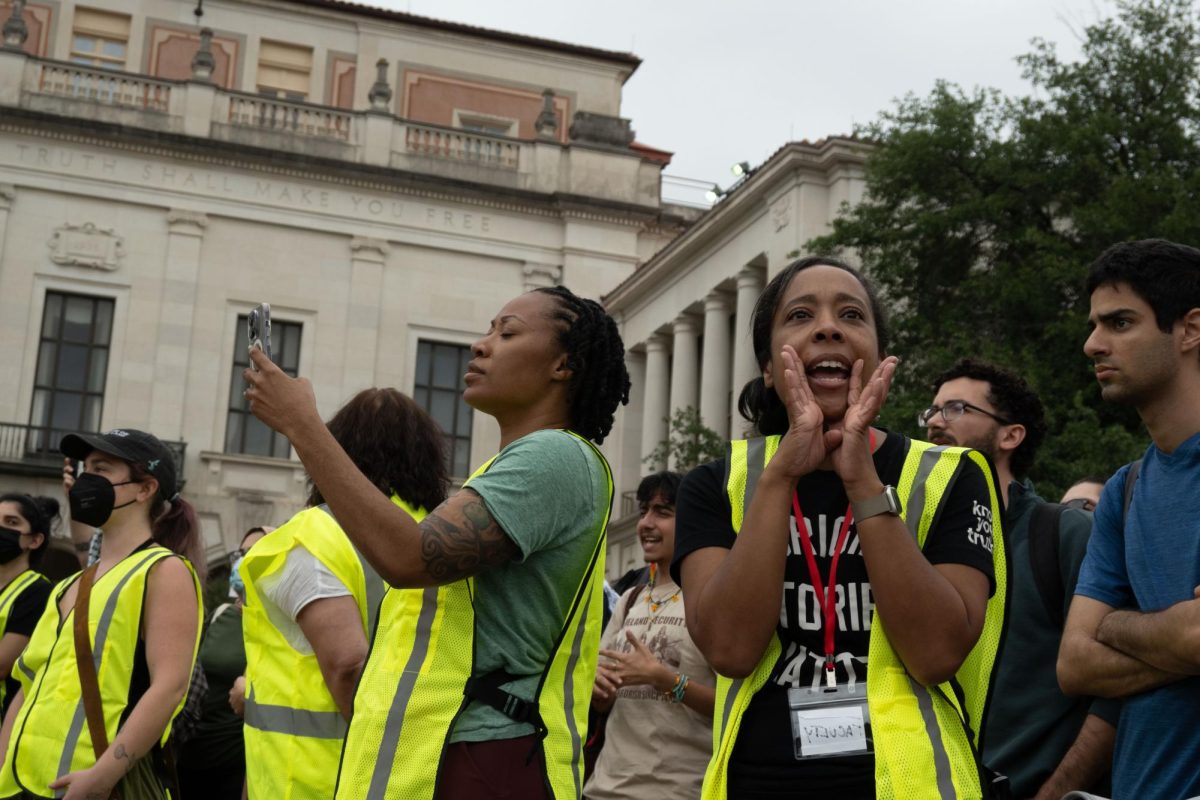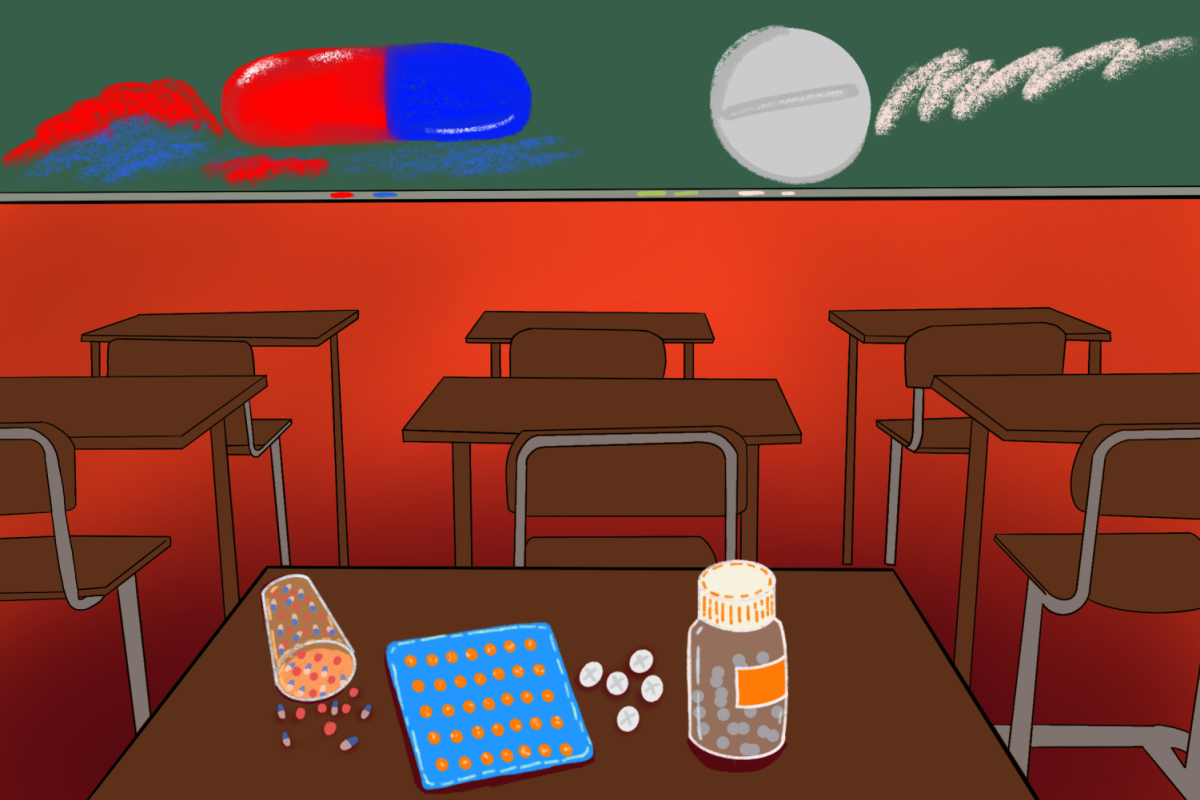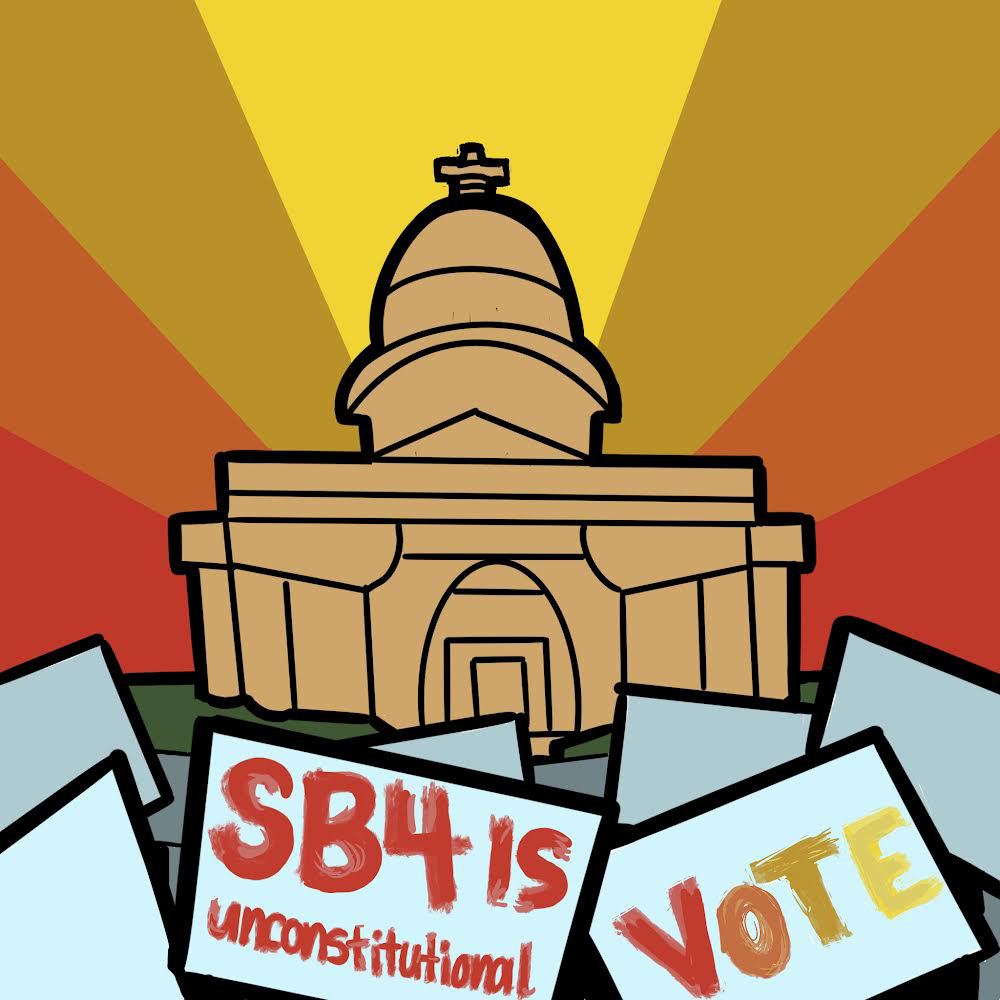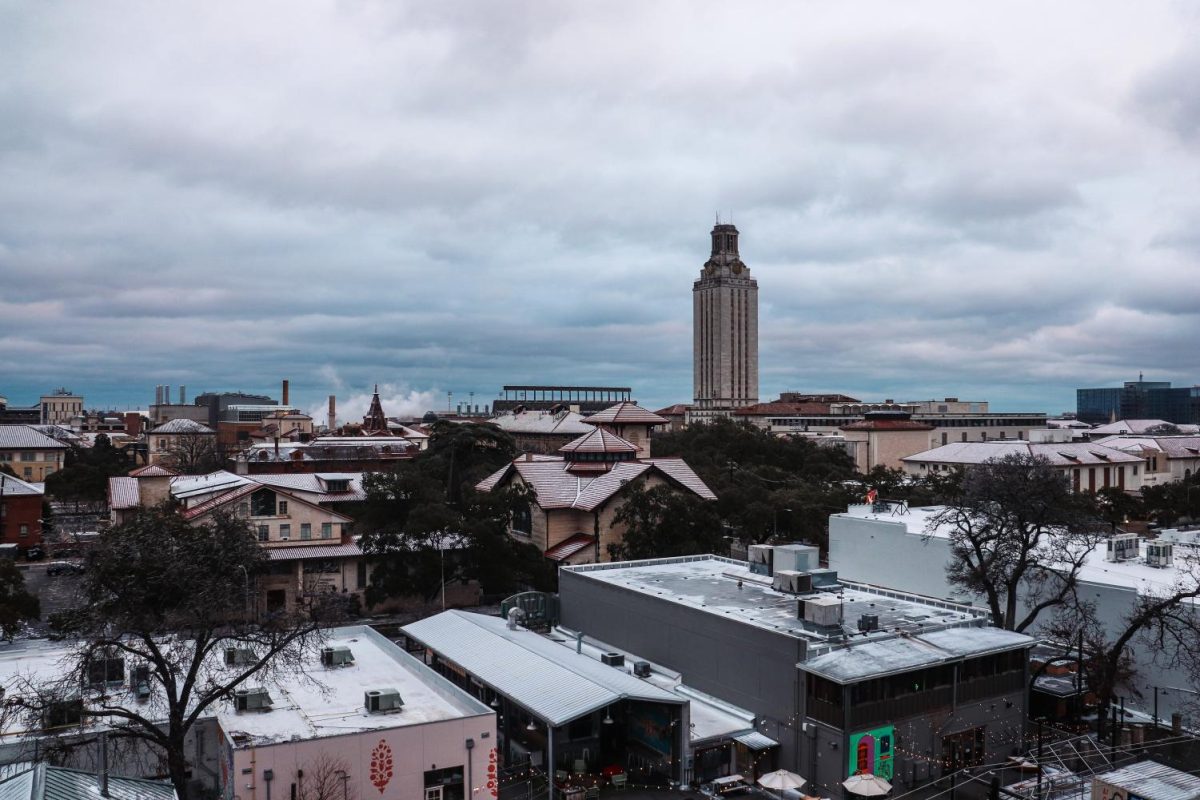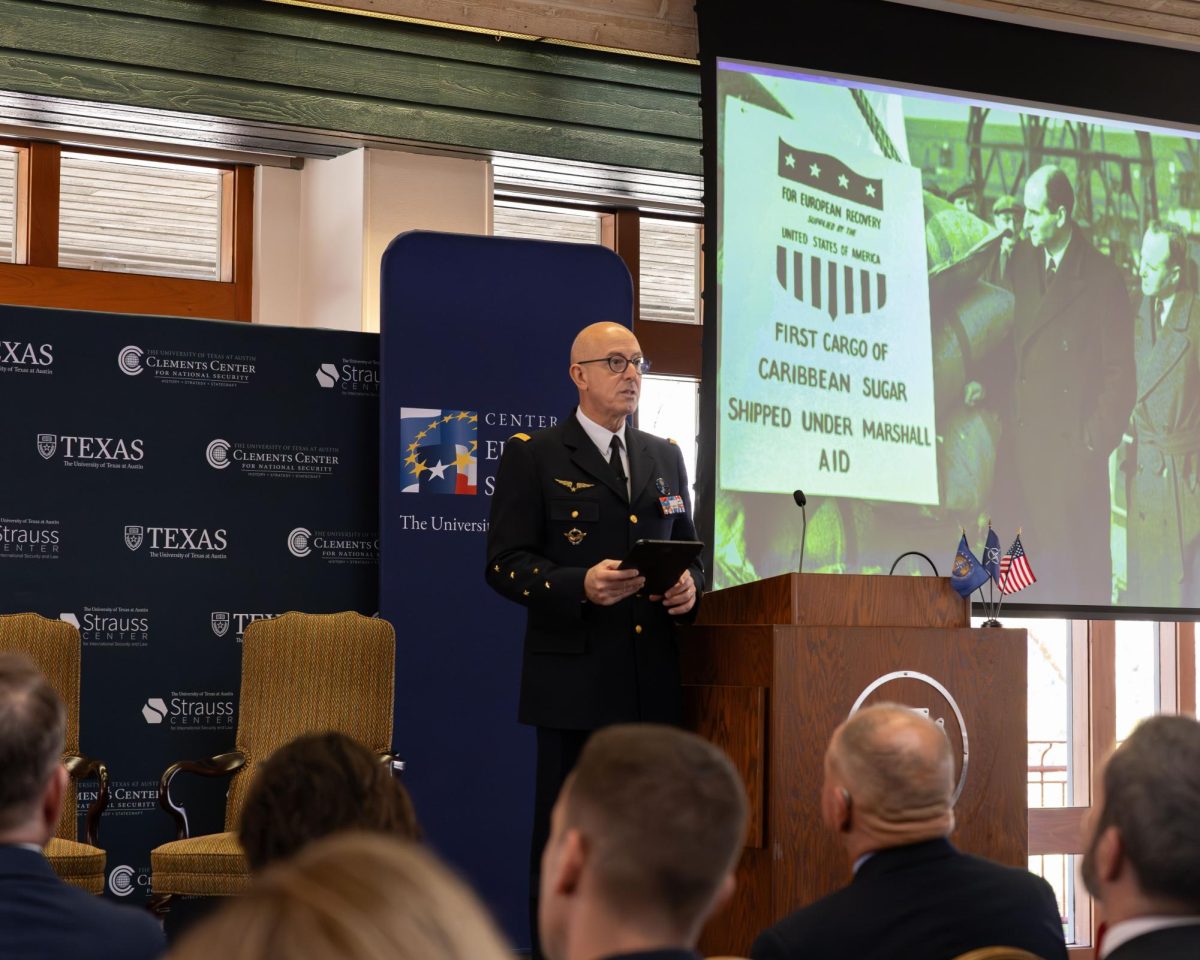
Secretary of State Antony Blinken discussed the state of foreign affairs at the Hogg Memorial Auditorium Wednesday.
Blinken was introduced by UT President Jay Hartzell and interviewed by Kay Bailey Hutchison, a former United States ambassador to NATO. The event, hosted by UT’s Clements Center for National Security and the Robert Strauss Center for International Security and Law, is the first to be held in Hogg since it went under construction in November 2021.
“This is an important occasion for our University, and it fits our role,” Hartzell said. “Former UT President Harry Ransom described UT’s campus as a field of ideas, and that is certainly true today as we welcome our esteemed guests.”
Blinken said President Joe Biden and the State Department see our current time period as an “inflection point” in history, meaning decisions made by the country’s leadership today will shape the world for generations to come.
“We had an inflection point after World War II, we had another one after the end of the Cold War, and we believe we are in one of those right now,” Blinken said. “You have a reemerging great power competition that is primarily engaged in shaping what the future looks like.”
The sustained financial support of Ukraine by the U.S. and other countries during its ongoing conflict with Russia is essential to the war’s resolution, Blinken said. The support also sends a message to other countries, Blinken said, that they can’t behave the same way Russia has to Ukraine.
“One of the things that we think President Putin believes is that he can outlast us, he can outlast the Ukrainians, he can outlast the support that Ukraine is getting, and it’s very important that we disabuse him of that notion,” Blinken said. “Because that’s actually the quickest path to having this resolve, having an end to the aggression, (and) having a just and durable peace — no one wants that more than the Ukrainian people.”
Besides immediate support to Ukraine in the war against Russia, Blinken said the U.S., along with 29 other countries in NATO, is working with Ukraine to help the country become economically self-sustaining and able to deter and defend itself from aggression in the future.
“This is a way to be able to help them build that force, to do it in a sustainable way for us, in terms of the resources that are required because it’s going to be divided over 30 countries, and to put Ukraine in a position where it can stand on its own feet,” Blinken said.
After today’s visit to the University, Blinken will meet with officials in Mexico to discuss ways to mitigate the historic influx of migrants at the U.S. border.
Blinken said around the world, countries face the largest migration challenge of all time as more than 100 million people find themselves displaced from their homes. In the Western Hemisphere, which contains the U.S., Blinken estimates 20 to 25 million people are migrants.
“It is imperative that we do everything that we can as effectively as we can to ensure that migration is humane, safe and orderly … Mexico is our closest partner in this for obvious reasons,” Blinken said.
Around one year ago at the Summit of the Americas, which brought together countries in the Western Hemisphere, Blinken said virtually every country acknowledged shared responsibility for dealing with migration. Blinken said this means countries of origin, transit and destination for migrants must work together to put in place practical policies to better control migration.
“That includes everything from building up their own asylum system so that people can actually, if they are going to leave their home, find asylum in other countries, not just the United States,” Blinken said. “It means in some cases being able to repatriate, take back people who have tried to come here without the legal basis to do so. It means making sure that people are treated in safe and humane ways.”
Synthetic opioids such as fentanyl, are the number one cause of death for Americans ages 18 to 49, Blinken said, putting the issue at the top of the country’s agenda.
“We’ve been the canary in the coal mine of fentanyl, but now we’re seeing it spread to many other places in the world,” Blinken said. “We put together this summer, a coalition of about a hundred countries now, that are determined to work together to better address the problem of synthetic opioids.”
Lastly, Blinken discussed the challenge of battling disinformation and misinformation online, making sure technology is used for good, and promoting the proper use of artificial intelligence globally.
Blinken said the White House has spent a lot of time working with American companies leading the work in AI to reach commitments on how to use AI for good and how to mitigate any of its downsides.
“My job now at the State Department is to take those commitments, take those understandings reached between the White House and those foundational companies and internationalize them, socialize them around the world, get other countries to sign on and to sign up so we create a foundation of how AI can be used and how it shouldn’t be used,” Blinken said. “This is just the dawn of that effort … More than anything else, that’s going to shape the future that we live in.”



